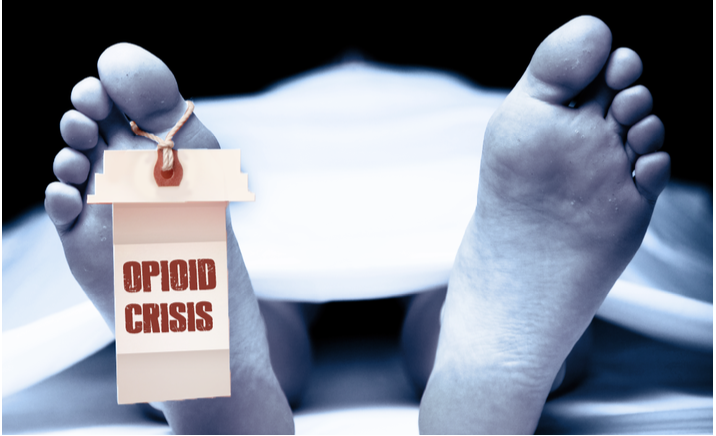CommentsOTHER WORDS-As the sister of a brother lost to an opioid overdose, Trump’s claim that we need a border wall in order to keep drugs out is offensive to me on multiple levels. Fact checkers also report that his claims are not true — a border wall would not keep drugs out of our country.
After the death of my brother a decade ago, I went looking for answers about drugs and addiction. Gabor Mate, a medical doctor who treated addicts in Vancouver, found that his patients had all suffered severe trauma before succumbing to addiction. He wrote a book, In the Realm of Hungry Ghosts, explaining how trauma makes the brain more susceptible to addiction.
That was also the finding of the Adverse Childhood Experiences (ACE) study. The study surveyed patients about whether they experienced 10 different types of stressful or traumatic experiences (called ACEs for short) in childhood: various types of abuse, parents divorcing, a parent going to prison, or a parent suffering addiction or mental illness. Then it correlated their scores with a number of illnesses.
The higher your ACE score, the more likely you are to suffer alcoholism, drug addiction, or a host of other health problems.
My brother and I both experienced childhood trauma. I ended up suffering anxiety, depression, and chronic migraines. He developed panic attacks and coped with his pain by binge eating and using drugs. I’m told the day he overdosed was only the third time he’d ever used heroin. He was alone in his apartment, age 23.
Through random chance, I was luckier than he was. Life dealt us both severe pain but for me the pain took a form that was less deadly and more conducive to getting help. His death was my catalyst to get therapy. It’s taken a decade, but I finally feel like my life has turned around.
When just getting through everyday life hurts so very much, drugs present a welcome relief. I don’t think I’m a better person than he was; I was just luckier. Trauma left him susceptible to addiction, and for some reason it just landed me with 20 years of migraines.
The U.S. has tried to solve its drug problem by cutting off the supply of drugs coming through its borders since at least the 1980s. It hasn’t worked. Neither has prison sentences for nonviolent drug offenses. In fact, these approaches have only made the problem worse, and created many others besides.
If we want to cut down on our drug problem, we need to cut down on the factors that cause addiction in the first place. We must work on reducing the amount of trauma, poverty, and despair Americans experience and offer help to those who’ve suffered so they can overcome it.
We should also reduce demand for illegal drugs by offering safe, legal, and regulated drugs when they can provide health benefits, as medical marijuana has done for me.
Even if a border wall were a cost effective and feasible way to keep drugs from coming over the border (which according to virtually every expert, it isn’t), it would do nothing to address the root causes of addiction in America.
When people are in pain, they’ll find a way to get drugs. So long as there’s a market for illegal drugs, traffickers will find ways to produce them here or bring them in. The real answer to the illegal drug trade is addressing the root causes of addiction.
Jill Richardson is an OtherWords columnist who is pursuing a PhD in sociology at the University of Wisconsin-Madison. She lives in San Diego. Distributed by OtherWords.org. Prepped for CityWatch by Linda Abrams.
















